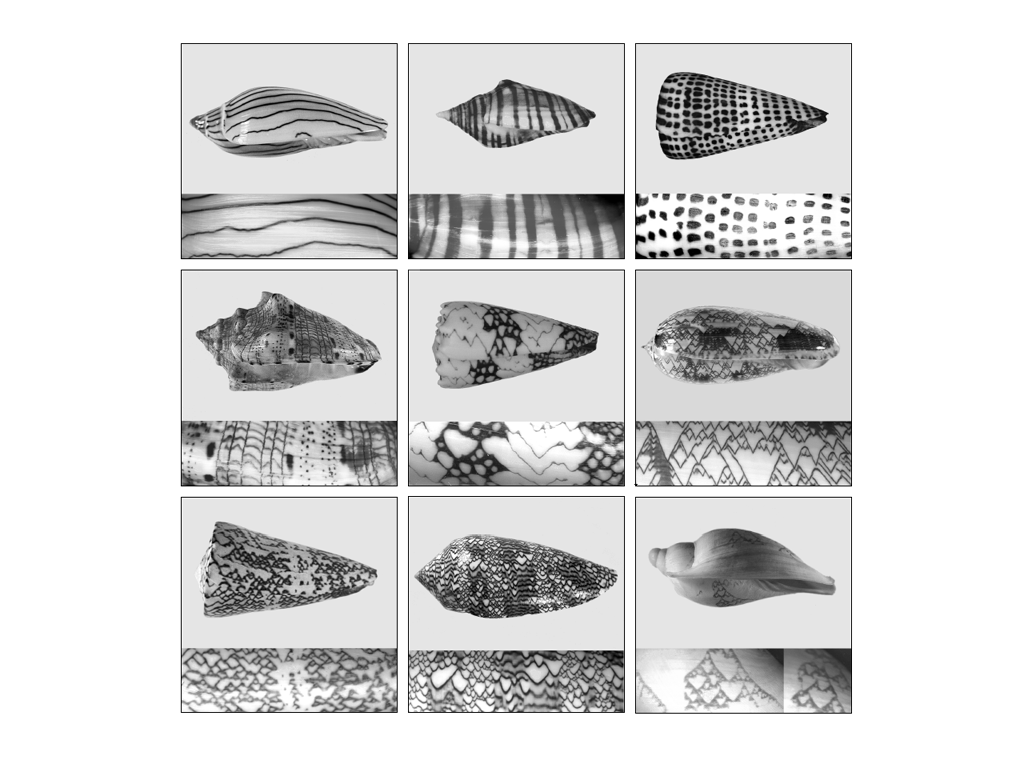Stephen Wolfram: A New Kind of Science; 2002.
 Source:
Source:
http://www.stephenwolfram.com
“If one looks at different species, one sees all sorts of different patterns; but there are definite classes. And here´s the remarkable thing: those classes are the same classes of behavior that one sees if one looks at all possible simplest relevant cellular automata”.
The work of Stephen Wolfram tries to rephrase the theoretical and methodological laws of the universe from a mathematical point of view; Wolfram makes many studies that lead to provocative results and conjectures, some of the most important from my personal opinion are: 1. Simples rules can generate complex behavior. 2. All modern mathematical methods can deal with complex systems like the ones in biology and social sciences. 3. All of the systems can be viewed as computations; even the most complex ones have an equivalence with simple rules. He use this conclusions to try to understand and mold any kind of the natural phenomenal; the main thesis that he explain is called “The Principle of Computational Equivalence” or PCE, and he bases almost all his book in hundreds of computer experiments that use Cellular Automata, or CA, which consists in a lattice of sites with an associated state, usually defined by 0 or 1; each one of this sites is related to a rule that usually depends on some small neighborhood from nearby sites; this latter is the essential part of the PCE. One of the most important formulations of the PCE is: almost all processes which are not obviously simple, can be viewed as computations of equivalent sophistication; this implies that it does not matters how different are the underlying structures, all complex systems are computationally equivalent; because of this, the traditional continuous mathematical models for natural systems cannot perform any more sophisticated computations. Almost all the book is written in a colloquial way, to be more easy for understand, but there are approximately 300 extensive pages of code notes that are almost impossible to read for the majority of the people, and even though Wolfram introduces hundreds of simple rules based system and provides the source code for these in Mathematica format, unless you are an expert in this software, fragments of code will not be particularly helpful. From a perspective, Wolfram´s point of view is pessimistic, because he suggest that classical continuous methods can never model the behavior of systems with the kind of complexity that you can find in the nature, and instead of it, is better to use the simplest Cellular Automata model. Because of the behavior of these systems can be only understood by simulations of them, his ideas mention that the equation is irrelevant to understand the natural phenomena for any kind of complexity; consequently, the Cellular Automata models cannot provide comparable insights into the understanding of the natural world that continuous systems do. But this is an argument that can be either true or false, depend from the person and the lector; and this is only a personal opinion.